How Does Keurig Dr Pepper Compare To Larger Rivals Coke & Pepsi?
- Keurig Dr. Pepper raised its dividend in September
- The stock has returned more, year-to-date, than larger rivals Coca-Cola and PepsiCo
- Keurig Dr. Pepper is part of the S&P 500, and its recent price action is essentially tracking its index
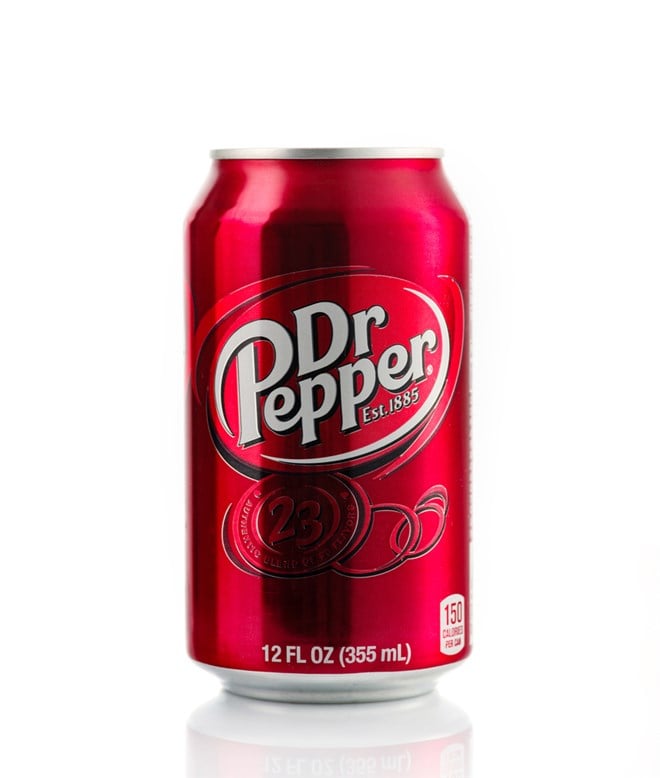
With the market continuing to hit the skids, despite Wednesday’s bounce higher, dividend-paying stocks like Keurig Dr Pepper (NASDAQ: KDP) may look more and more attractive.
But can it bubble to the top of investors’ watch lists, especially when compared to bigger rivals Coca-Cola (NYSE: KO) and PepsiCo (NYSE: PEP).
Keurig Dr Pepper raised its dividend by 6.7% in mid-September, increasing its annualized dividend rate to $0.80 per share, up from $0.75 per share.
The increased quarterly cash dividend of $0.20 per share is payable on October 14 to shareholders of record on September 30.
Its current dividend yield is 2.2%.
Coke’s yield stands at 3.1%, and Pepsi’s is 2.7%.
What about the total return for each when factoring in price action as well?
Year-to-date, here’s how each has performed:
- Keurig Dr Pepper: +0.74%
- Coca-Cola: -1.54%
- PepsiCo: -0.96%
All three are large caps and tracked by the S&P 500. Keurig Dr. Pepper joined the index in June, replacing Under Armour (NYSE: UA) which is currently in the small-cap territory.
However, Coke and Pepsi have market caps of $244 billion and $229 billion, respectively, dwarfing Keurig Dr. Pepper value of $51 billion.
To a degree, the smaller size may explain some of Keurig Dr. Pepper’s outperformance this year, although when you are talking about mega-caps versus large caps, the difference is not always so pronounced.
Keurig Dr Pepper’s cold-beverage business was a standout in the second quarter, which the company reported in late July.Hot Sales Of Cold Beverages
In the earnings release, the company said its Liquid Refreshment Beverages category remained exceptionally strong, with retail dollar consumption advancing 9.9%, and market share growing or holding across 92% of its cold beverage portfolio. The company said that largely reflected strength in carbonated soft drinks, premium unflavored water, coconut water, seltzers, teas, apple juice, vegetable juice, and fruit drinks.
The company’s brands include not only its namesake Dr. Pepper but also Sunkist, Canada Dry, A&W, Squirt, CORE Hydration, Vita Coco, Polar seltzers, Snapple, Hawaiian Punch, and Mott's.
The coffee segment, formed when Keurig Green Mountain acquired Dr. Pepper Snapple in 2018, also grew, but at a lower rate. This business unit includes its own manufactured coffee pods, as well as technology licensing to other manufacturers.
In the release accompanying the earnings report, outgoing CEO Bob Gamgort said, "We successfully recovered from supply chain disruptions in coffee and non-carbonated beverages, implemented additional pricing to offset inflation, and continued to accelerate growth across our broad portfolio, leading to another quarter of strong market share performance. We remain confident that our ‘all-weather’ business model will enable us to deliver in the ongoing volatile macro environment."Revenue Ahead Of Wall Street Views
Earnings came in at $0.39 per share, up 3% over the year-ago quarter. Revenue was $3.554 billion. A glance at MarketBeat earnings data shows that the company met earnings views, but revenue came in ahead of expectations.
Analysts have a “hold” rating on the stock, as analyst data compiled by MarketBeat show. The consensus price target is $40.33, with a potential upside of 11.94%.
On September 27, Goldman Sachs downgraded the stock from “buy” to “neutral,” with a price target of $37, up slightly from where shares were trading Thursday.
On its chart, you’ll see that Keurig Dr. Pepper is forming a correction that’s fallen 14%, as of Thursday. The stock’s price performance has essentially tracked that of its index. Keurig Dr. Pepper topped out from a recent rally on August 18, two days after the S&P 500 rolled over from an interim high.
As with pretty much all stocks right now, it’s one to track, but use caution until the market re-enters a confirmed rally.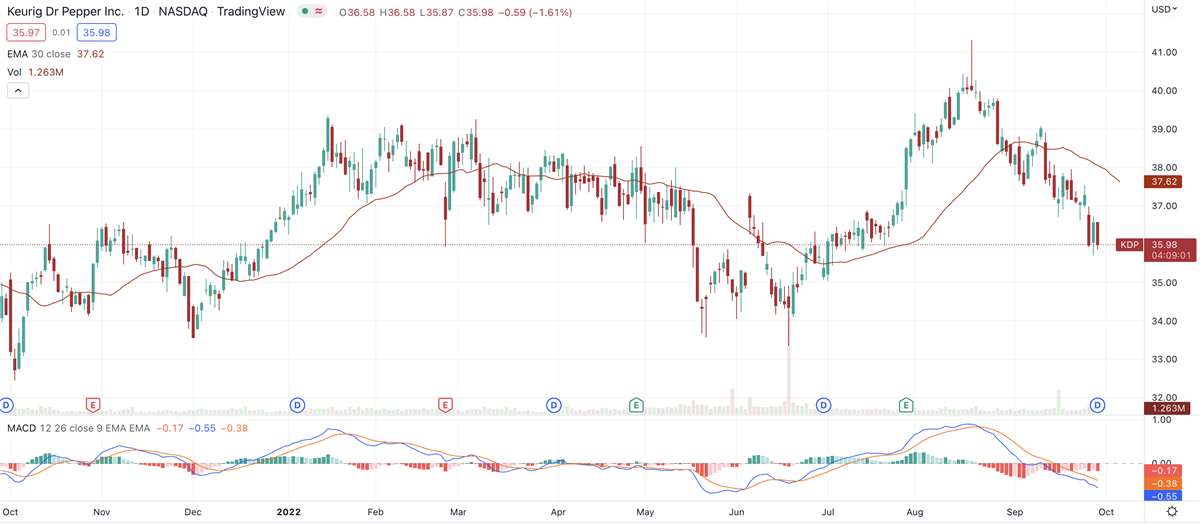
More News
View More

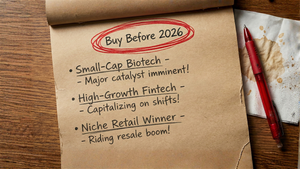
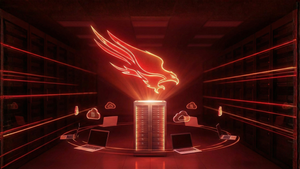
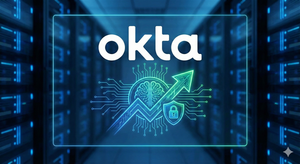
Recent Quotes
View More
Quotes delayed at least 20 minutes.
By accessing this page, you agree to the Privacy Policy and Terms Of Service.